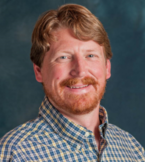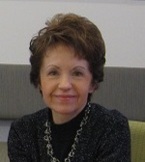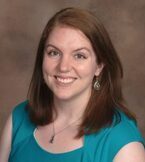The Second Language Studies Program is an interdisciplinary program that has affiliated faculty members from a number of Colleges, Departments, and Centers from within Michigan State University.
The Michigan State University, SLS-affiliated faculty listed below sometimes teach classes that are offered as part of the SLS Ph.D. Program and can serve on SLS Ph.D. students’ dissertation committees.

Dr. Sandro R. Barros is an Assistant Professor in the Department of Teacher Education at Michigan State University. His scholarship is situated at the intersection of Curriculum Theory, Language Policy, and Multilingualism. Dr. Barros’ research focuses on the interplay between language and citizenship rights in mainstream and non-traditional education. Empirically and theoretically, Dr. Barros’ work explores the ramifications of named language’s public curricula and citizenship: how language definitions are culturalized and taken up in public discourse; how curriculum and pedagogy within institutional contexts foment ideas about monolingualism; and how governmental and non-governmental actors, community, and individuals support the underwriting of language policies and practices within national and transnational educational settings.

Dr. Alan Beretta is Professor of Linguistics and Director of the EEG Lab in Cognitive Science Program and in the Department of Linguistics, Languages and Cultures. His research in the Neurolinguistics/EEG lab has broadly examined linguistic representations, their neural implementation and their online processing. His research has also dealt primarily with aphasic subjects suffering a selective loss of language.

Dr. Silvina Bongiovanni is an Assistant Professor in Spanish. Her main research area is experimental phonology: she studies the phonetic underpinnings of phonological variation. Bongiovanni’s primary focus of inquiry explores variation in nasality (i.e. sounds that are produced with air passing through the nose as well as the mouth), both in vowels and in consonants. In her dissertation, Silvina examined dialectal and phonological differences in anticipatory vowel nasalization (when the nasal consonant follows the vowel) in Dominican and Argentine Spanish by comparing how nasality changes over time (i.e. time-course) and if the word-final nasal consonant is weakened. She is also interested in the acquisition of phonological systems by second language speakers and have examined the impact of learning context (study abroad vs. at-home) on development of L2 sound systems.

Dr. Ryan P. Bowles is Associate Professor of Human Development and Family Studies. Dr. Bowles focuses on measurement and assessment of language and literacy skills in early childhood. He uses contemporary statistical methods for measurement (e.g., Item Response Theory, Rasch measurement) and longitudinal analysis (e.g., latent growth curve modeling, growth mixture modeling) to better understand how measurement and development inform each other.

Dr. Lucía Cárdenas Curiel is an Associate Professor of Bilingual/Multilingual Education in the Department of Teacher Education at Michigan State University. Her research focuses on bilingualism, multilingualism, biliteracy development, and multiliteracies practices to promote equitable education for bilingual and multilingual learners. Her work was recognized with the Arthur Applebee Award for Excellence in Research from the Literacy Research Association and the National Association of Bilingual Education Dissertation Award. She was also a research fellow in the National Council of Teachers of English Cultivating New Voices Among Scholars of Color program.

Dr. Laura Dilley is Assistant Professor in the Department of Communicative Sciences and Disorders. She received her B.S. in Brain and Cognitive Sciences in 1997 from MIT and her Ph.D. in Speech and Hearing Biosciences and Technology from MIT and Harvard in 2005. After serving as a post-doctoral research associate in cognitive psychology at Ohio State University, she served as an Assistant Professor from 2006-2009 at Bowling Green State University with a dual appointment in the Department of Communication Sciences and Disorders and the Department of Psychology.

Dr. Karthik Durvasula is Assistant Professor of Linguistics in the Department of Linguistics, Languages and Cultures. The central questions his research seeks to answer are related to the nature of phonological representations, especially phonological features, and the techniques linguists can use to probe them. Recent phonological research has greatly benefited from its emphasis on experimental work, and in his more recent work, he has adopted this strategy by employing a variety of experimental techniques to get at questions related to speakers’ knowledge of phonological representations and generalizations.

Dr. Debra Hardison is Associate Professor in the Department of Linguistics, Languages and Cultures at Michigan State University (MSU). Her research program has focused on auditory-visual integration in spoken language processing, co-speech gesture, second-language speech production and the applications of technology in perception and production training of the segmental and suprasegmental aspects of language. Current projects explore the relationships among elements of L2 learners’ socioaffective profiles and the development of their oral skills in different learning contexts. She also serves as the coordinator of EPIC (English Partners in Communication), the TESOL teaching practicum.

Dr. Felix Kronenberg is Associate Professor in the Department of Linguistics, Languages and Cultures and Director of Center for Language Teaching Advancement (CeLTA). Until May 2018, he was an Associate Professor of Modern Languages and Literatures and the Director of the Language Learning Center at Rhodes College in Memphis, TN (USA). His current research is about physical, virtual, and hybrid language learning spaces. Felix is currently the president of the International Association for Language Learning Technology and an advisory board member of the Learning Spaces Collaboratory. He has served as the president of the SouthWest Association for Language Learning Technology, has been a fellow for the National Institute for Technology in Liberal Education, has been a learning spaces and language center design consultant for various colleges and universities and a keynote and plenary speaker at local, state, regional, national and international conferences.

Dr. Yen-Hwei Lin is Professor of Linguistics specializing in phonology. Her research has focused on phonological representations and constraints with particular interests in feature theory, moraic and syllabic structures, the phonology-morphology interface, phonetically-based phonology, and Chinese phonology. She is the author of The Sounds of Chinese (Cambridge University Press), co-editor of Lingua Sinica and an associate editor of Language and Linguistics.

Dr. Ayman Mohamed is an assistant professor of Arabic at Michigan State University. He started his career as an instructor of English in Egypt. He then pursued his graduate studies in the U.S, obtaining an MA degree in Linguistics and ESL from the University of North Texas under a Fulbright grant. In 2015, He received his PhD from Michigan State University SLS Program with a focus on second language vocabulary acquisition. As an assistant professor, he taught all levels of Arabic as well as IAH courses. His research interests include task-based learning, incidental vocabulary acquisition, hybrid and online pedagogy of Arabic and using eye tracking techniques in second language reading. Dr. Mohamed has led the move in the offering of Arabic hybrid classes at MSU. He concurrently worked on developing the Arabic curriculum, by building an open resource textbook for the Arabic program supported by an OER award from MSU libraries. He is currently co-authoring a forthcoming textbook in Egyptian Arabic with Georgetown University Press.

Dr. India Plough is Associate Professor in the Residential College in the Arts and Humanities (RCAH). She also serves as director of the Cultures and Languages across the Curriculum Program and teaches in the Language and Culture Pathway of the RCAH. Her research interests include second language teaching, learning, and assessment as well as test development and validation. Using qualitative and quantitative methodologies, she investigates the role of interactional competence and nonverbal behavior in defining the second language speaking construct.

Dr. Rajiv Ranjan is Assistant Professor in the Department of Linguistics, Languages and Cultures at Michigan State University (MSU). At MSU, Rajiv is associated with the Asian Studies Program and the Master of Arts in Foreign Language Teaching (MAFTL) Program. He is also the mentor for the Fulbright Language Teaching Assistants (FLTAs). Before joining MSU, Rajiv taught as a graduate teaching assistant at the University of Iowa, Iowa City (2010-2015) where he received his PhD in Second Language Acquisition in 2015. Rajiv’s primary area of research is generative approach to second language acquisition (SLA). His research interests also include socio-cultural approach to SLA, second language writing and speaking, language pedagogy, and morpho-syntax.

Dr. Daniel J Reed is Testing Director in the English Language Center (ELC). He oversees test administration and leads test development and validation research in support of the ELC’s English exams for international students. He has played major roles in the development of tests for a dozen languages and has conducted research on language aptitude and on oral proficiency assessment. He and Dr. Susan Gass co-developed the ELC’s large-scale testing program in Greece.

Dr. Patti Spinner is Associate Professor of Linguistics in the Department of Linguistics, Languages and Cultures. She received her Ph.D. in Linguistics from the University of Pittsburgh in 2007, and also has an M.A. in German. She has taught German as a foreign language at the Ohio State University and Kenyon College, and ESL at the University of Pittsburgh, the University of Rostock (Germany), and Inlingua Language Schools (Germany). Dr. Spinner’s primary research interests are in the second language acquisition of morphosyntax from a formal perspective, particularly the acquisition of features such as grammatical gender, case, number, and tense. Other research interests include morphosyntactic measures of L2 language development and the use of music in the instruction of L2 grammar.

Dr. Camelia Suleiman is an associate professor in the Department of Linguistics, Languages and Cultures at Michigan State University and has been its Arabic Program coordinator from 2012-2020. Dr. Suleiman’s research interests include Arabic sociolinguistics, Arabic’s contact with Hebrew, as well as research on: language, race and gender; language and the media; and the Israeli-Palestinian conflict. In fall 2019, she was a Lady Davis Visiting Professor in the Faculty of Social Sciences at The Hebrew University of Jerusalem conducting research on the social context of Arabic in the Middle East. Her publications include: The Politics of Arabic in Israel: A Sociolinguistic Analysis, and Language and Identity in the Israel-Palestine Conflict: The Politics of Self-Perception in the Middle East.

Dr. Carrie Symons is Assistant Professor of Literacy and Language in the Department of Teacher Education where she teaches undergraduate and graduate courses in elementary literacy instructional methods, literacy for K-12 emergent bilinguals, action research, and English language development across content areas. Carrie’s research explores the relationship between teachers’ instructional practices and immigrant-origin youth’s literacy and language development in multilingual contexts. Drawing upon sociocultural, sociolinguistic, and cognitive theories of literacy and language development, she aims to identify what teachers need to know to effectively facilitate immigrant-origin youth’s learning across content areas and how culturally and linguistically responsive pedagogical knowledge is best developed.

Dr. Emily Heidrich Uebel is an Academic Specialist at the Center for Language Teaching Advancement at Michigan State University. She serves as the Project Manager for the LCTL and Indigenous Languages Partnership, an Andrew W. Mellon Foundation grant project focused on improving instruction in less commonly taught and Indigenous languages. Her work on topics including language proficiency and technology has been published in several journals and edited volumes. Her research interests include proficiency in foreign languages, educational technology and online instruction, curriculum design, and education abroad topics.

Dr. Suzanne Evans Wagner is Associate Professor of Linguistics in the Department of Linguistics, Languages and Cultures. She is a variationist sociolinguist who is a core faculty member in the Linguistics program. She investigates the social mechanisms of language variation and change. Her primary interest is in individuals’ post-adolescent modification of their variable linguistic repertoire. With Isabelle Buchstaller, she has co-edited a book on this topic, Panel Studies of Variation and Change (2017). She is also interested more broadly in age, ethnicity, gender and social class as factors in the transmission, incrementation and diffusion of language change.